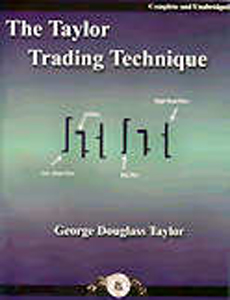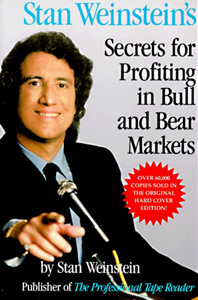OPEC set to hold oil production quota levels
Further Reading
OPEC members gathering in Kuwait overnight looked poised to hold their production quotas, but pressure was growing for another meeting next month to address an expected drop in demand for oil.
Ministers from the 11-nation Organisation of the Petroleum Exporting Countries meet on Monday in Kuwait City, where they are expected to maintain the quota of 28 million barrels per day (bpd).
Opinions are split however on whether OPEC should renew a pledge to make an extra two million bpd available to the oil market for another three months.
The emergency spare capacity, which expires on December 31, was created in September to meet demand - if necessary - in the wake of hurricane disruption to US output, but so far there have been no takers.
Saudi Arabia's Oil Minister Ali al-Nuaimi, the cartel's most powerful member, indicated he supported keeping the status quo.
"Most probably there is no need to do anything to the ceiling or to the level of production," he told reporters after arriving in Kuwait City.
His position was echoed later by Iran's Oil Minister Kazem Vaziri-Hamaneh upon arrival.
"For the time being our reference (recommendation) is to keep the ceiling unchanged" said Vaziri-Hamaneh, who was formally approved to his position by parliament on Sunday.
Asked about renewing the spare capacity measure, however, Nuaimi questioned its validity without giving a direct answer to the question.
"We have put it two months ago, we are in the third month and nobody has asked for it. Plus the fact that inventories are building ... I don't think there is any demand," Nuaimi said.
Qatar's Energy Minister Abdullah bin Hamad al-Attiyah refused to reveal his position.
"This is a very important question but my answer is that we will discuss it," he told reporters.
In contrast, several other OPEC members, including the United Arab Emirates and Algeria, have voiced support for rolling over the temporary measure.
Indonesian Oil Minister Purnomo Yusgiantoro said he would back maintaining the quota and rolling over the two million barrels if the market situation has not changed.
"If the market does not change much from the previous meeting, then I will stick with the rolling (production) quota and the two million bpd extra commitment," he said.
OPEC has been pumping at near capacity - around 30 million bpd including production from Iraq - for much of the year in a bid to meet demand and calm prices, which hit historic highs at the end of August.
For now, the organisation appears happy that there is ample supply to meet the world's energy demands at the right price.
However, some members are concerned about the anticipated drop in demand for energy in the second quarter of 2006 triggered by warmer weather in the industrialised northern hemisphere.
Falling demand would lower prices, hitting OPEC's crucial oil revenue unless the cartel cuts its production quota.
Sheikh Ahmad Fahd al-Sabah, Kuwait's energy minister and also current OPEC president, indicated that this issue should be addressed at an extra meeting late next month or in early Feburary.
Qatar's Attiyah and his Libyan counterpart Fathi Hamed bin Shatwan supported this idea.
"I think we should have another meeting in January because we have to look carefully about the second quarter ... to see the reaction of the market," Attiyah said.
"I'm always concerned about the second quarter, because you see today, there is more oil in the market and hopefully this oil will not reflect negatively in the second quarter."
As for the sensitive issue of oil prices, members appeared satisfied with the current level, which is hovering around the $US60 a barrel mark in New York, ensuring ample revenue fills their coffers.
Libya's Shatwan said he thought the very minimum price for oil should be $US40. "It is the red line for us," he said, adding that a price of 60 dollars made both consumers and producers happy.
Kuwait, hosting the 138th OPEC conference, has only played host to such a meeting by the cartel twice. The last time was in 1966.
OPEC, which produces about 40 per cent of world oil, comprises Algeria, Indonesia, Iran, Iraq, Kuwait, Libya, Nigeria, Qatar, Saudi Arabia, the United Arab Emirates and Venezuela.
- How to Trade Forex and Gold Options
- How to Trade the Gold Price and Profit!
- Forex Trading the EUR/USD Pair € EURO and $ US Dollar
- How to Trade Stock Market Indices S&P500
- How to Trade Crude Oil
- Forex Trading Psychology
- What Are Broker Recommendations?
- Free Tickets to Trading & Investing Seminar & Expo ($18) Brisbane 2013
- Stock Calc App
- All About Warrants
- Introduction to Exchange Traded Funds
- Introduction to Exchange Traded Funds: Features
- Introduction to Exchange Traded Funds: Domestic ETFs
- Introduction to Exchange Traded Funds: International ETFs
- Exchange Traded Commodities
- Australian Stock Scan
- Australian Online Share Trading
- List of Trading Books
- Interesting Thoughts about the Australian Dollar
- What's the Meaning of Hawkish?
- Do You Know How To Use the P/E Ratio
- Trading, Religion and Politics - Do They Have Anything in Common?
- Shares that are Volatile that Double and Half in the Short Term
- Telstra (TLS) T3
- Margin Call by E-mail
- The Cost of Holding a Position
- Lack of Disclosure: Compensation from ASX Listed Company
- Unrealistic Returns and Benchmarks
- CMC Markets Down
- Quality versus Quantity Forex Trading
- Woolworths 1H Sales $30.7bn up 3.2%
Date added 31-01-2013 - ASIC Fines CommBank's CommSec
Date added 25-09-2012 - Industry Super Network Calls to Ban High Frequency Trading (HFT)
Date added 22-09-2012 - NAB Launches Online Share Trading Platform
Date added 19-09-2012 - Reserve Bank of Australia Says 23 Countries Holding AUD
Date added 18-09-2012 - Australia Post Digital Mailbox
Date added 10-09-2012 - Winners and Losers of Trading for Week 2
Date added 16-01-2012 - 2012's First Week of the Best and Worst Traded Stocks
Date added 09-01-2012 - 2011's Last Best and Worst Traded Stocks
Date added 05-01-2012 - Best and Worst Pre-Christmas Traded Stocks
Date added 30-12-2011 - Trading Winners and Losers for Dec. 12-16
Date added 19-12-2011 - Best and Worst Traded Stocks for Dec. 5-9
Date added 13-12-2011 - Top 3 Best and Worst Traded Stocks
Date added 05-12-2011 - ASX Glitch Trading Halt
Date added 27-10-2011 - Worst Trade Stocks (and the Best)
Date added 06-08-2011
Top 150 Public Companies Listed on the Australian Stockmarket as at 29/05/2009
- BHP Billiton
- Westpac Banking Corporation (WBC)
- Commonwealth Bank of Australia (CBA)
- National Australia Bank (NAB)
- Telstra (TLS)
- ANZ
- News Corporation (NWS)
- Woolworths Limited(WOW)
- Woodside Petroleum Limited (WPL)
- Rio Tinto
- Westfield Group (WDC)
- Westfarmers Limited (WES)
- QBE Insurance
- CSL
- Newcrest Mining Limited (NCM)
- Origin Energy Limited (ORG)
- Santos Limited (STO)
- AMP Limited (AMP)
- Macquarie Group (MQG)
- Foster’s Group Limited (FGL)




